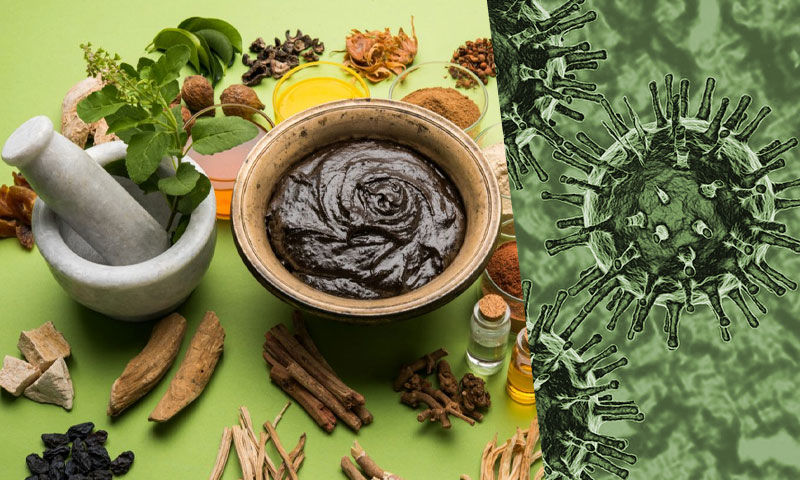
Issues have primarily affected women aged between 30 and 49, MHRA has said.
Reports have typically involved 'heavier than usual' bleeding or a delayed period.
But no evidence they are occurring more commonly than normally expected.
In a blog post on the organisation's website addressing the link, it said: 'The HPV (human papillomavirus) vaccine and the flu vaccine have been reported to affect menstrual cycles temporarily so it wouldn’t be surprising of Covid vaccines do so briefly either.
"Data Supports Use of Anti-Parasitic Drug Ivermectin in COVID-19 Patients, Study Shows"
The study, published last week in the American Journal of Therapeutics, analyzed data from multiple clinical studies assessing ivermectin as a potential treatment for COVID-19. Ivermectin, which is approved by the U.S. Food and Drug Administration (FDA) as a treatment for intestinal strongyloidiasis and onchocerciasis, which are two conditions caused by parasitic worms, has anti-inflammatory properties. Ivermectin has also been approved as a topical treatment for head lice.
The scientific team wanted to determine the impact this drug would have against COVID-19, particularly in reducing infection and mortality. And, from what the research suggests, the team is confident in the efficacy of ivermectin against COVID-19.
First reported by The Epoch Times, the data showed ivermectin reduced the risk of death in mild-to-moderate patients by an average of 62%. The study data further suggests that risk of death was found to be 2.3% among hospitalized patients treated with ivermectin, compared to 7.8% for those who were not. The team did note that there may be no benefit for patients who are in need of mechanical ventilation.
“Moderate-certainty evidence finds that large reductions in COVID-19 deaths are possible using ivermectin. Using ivermectin early in the clinical course may reduce numbers progressing to severe disease. The apparent safety and low cost suggest that ivermectin is likely to have a significant impact on the SARS-CoV-2 pandemic globally,” the study authors concluded.
"Vitamin D and COVID-19: why the controversy?"
On Dec 17, 2020, the National Institute for Health and Care Excellence (NICE), in collaboration with Public Health England and the Scientific Advisory Committee on Nutrition, published an updated rapid review of recent studies on vitamin D and COVID-19. Their recommendations support the current government advice, revised in April, 2020, during the first lockdown in the UK, for everyone to take vitamin D supplements to maintain bone and muscle health during the autumn and winter months.
The recommendations are also in line with new guidance from the UK government, released on Dec 22, 2020, allowing extremely clinically vulnerable people to opt in to receive a free 4-month supply of daily vitamin D supplements—similar to an initiative launched earlier in Scotland. However, the rapid review concluded that sufficient evidence to support vitamin D supplementation with the aim of preventing or treating COVID-19 was still lacking and that the topic should be further investigated.
Experts studying vitamin D welcomed the call for more research, but the lack of specific recommendations in the context of COVID-19 was also met with disappointment by many in the scientific community who have argued that vitamin D supplementation is generally safe and that any potential low toxicity would likely be strongly outweighed by any potential benefits in relation to protection from COVID-19.
Original articles:
https://www.dailymail.co.uk/news/article-9708213/Nearly-4-000-women-report-period-problems-getting-Covid-vaccine.html
https://www.thelancet.com/journals/landia/article/PIIS2213-8587(21)00003-6/fulltext
real journalism...it does exist!